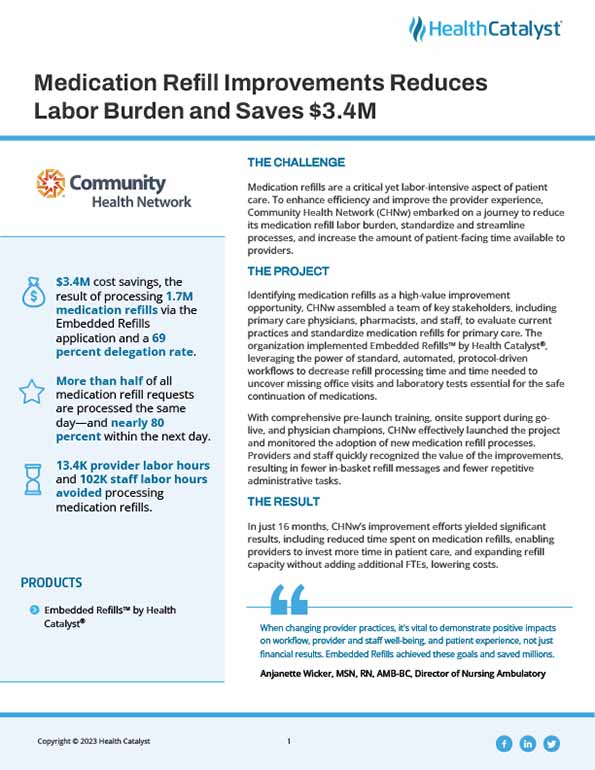Community Health Network sought to reduce its medication refill labor burden, standardize and streamline processes, and increase the amount of patient-facing time available to providers. The organization implemented Embedded Refills™ by Health Catalyst®, which helped reduce time spent on medication refills and expanded refill capacity without adding additional FTEs.
Medication refills are a critical yet labor-intensive aspect of patient care. To enhance efficiency and improve the provider experience, Community Health Network (CHNw) embarked on a journey to reduce its medication refill labor burden, standardize and streamline processes, and increase the amount of patient-facing time available to providers.
Identifying medication refills as a high-value improvement opportunity, CHNw assembled a team of key stakeholders, including primary care physicians, pharmacists, and staff, to evaluate current practices and standardize medication refills for primary care. The organization implemented Embedded Refills™ by Health Catalyst®, leveraging the power of standard, automated, protocol-driven workflows to decrease refill processing time and time needed to uncover missing office visits and laboratory tests essential for the safe continuation of medications.
With comprehensive pre-launch training, onsite support during go-live, and physician champions, CHNw effectively launched the project and monitored the adoption of new medication refill processes. Providers and staff quickly recognized the value of the improvements, resulting in fewer in-basket refill messages and fewer repetitive administrative tasks.
In just 16 months, CHNw’s improvement efforts yielded significant results, including reduced time spent on medication refills, enabling providers to invest more time in patient care, and expanding refill capacity without adding additional FTEs, lowering costs.
"When changing provider practices, it's vital to demonstrate positive impacts on workflow, provider and staff well-being, and patient experience, not just financial results. Embedded Refills achieved these goals and saved millions."
- Anjanette Wicker, MSN, RN, AMB-BC, Director of Nursing Ambulatory, Community Health Network




